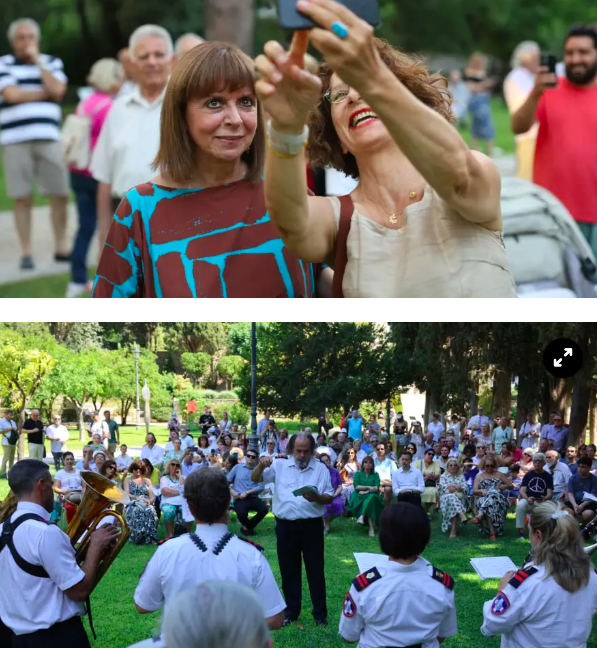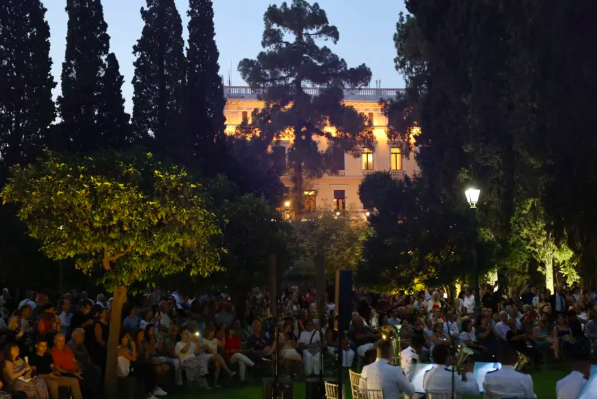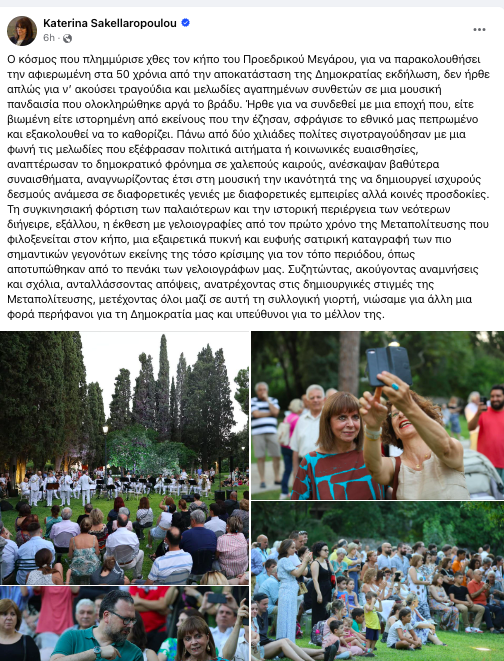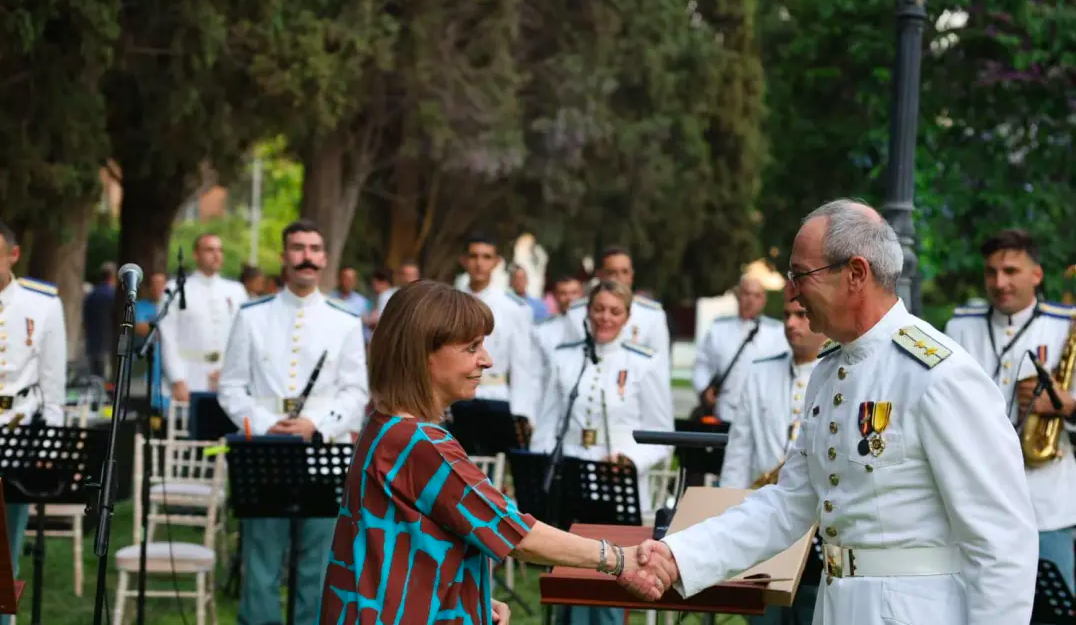If anyone passed by Herodou Attikou on Sunday, they would have heard familiar melodies by Hadjidakis, Theodorakis, Savvopoulos, Markopoulos, and other great composers whose music is synonymous with the postcolonial era. The garden of the Presidential Palace opened to the public yesterday, welcoming more than 2,000 citizens to celebrate the 50th anniversary of the Restoration of the Republic.

From early morning until evening, the orchestras of the Armed Forces and the Philharmonic of the Municipality of Athens, the MUSICA Choir of the Megaron Musikis, and the String Quartet of the Athens Conservatory provided a different ambiance to the garden that citizens visit every Sunday. Additionally, the presentation of an exhibition featuring cartoons from the period 1974-1975 was particularly moving. Cartoonists of the time captured the rapid developments and dense events of those days with their pens.
In her post, the President of the Republic emphasized that the people who “flooded the garden of the Presidential Palace yesterday to watch the event dedicated to the 50th anniversary of the restoration of the Republic did not just come to listen to songs and melodies of favorite composers in a musical extravaganza that ended late into the night. They came to connect with an era that, whether experienced personally or told by those who lived through it, sealed our national destiny and continues to define it.”

Katerina Sakellaropoulou, in the same post, concludes by saying that “discussing, listening to memories and comments, exchanging opinions, looking back on the creative moments of the Postcolonial period, and participating together in this collective celebration, we once again felt proud of our Republic and responsible for its future.”

The President’s Full Post
“The people who flooded the garden of the Presidential Palace yesterday to watch the event dedicated to the 50th anniversary of the restoration of the Republic did not just come to listen to songs and melodies of favorite composers in a musical feast that ended late in the evening. They came to connect with an era that, whether experienced personally or told by those who lived through it, sealed our national destiny and continues to define it. Over two thousand citizens hummed in unison to the tunes that expressed political demands or social sensitivities, revived the democratic spirit in troubled times, and evoked deeper feelings, recognizing in music its ability to create strong bonds between different generations with different experiences but shared expectations. The emotional charge of the older generation and the historical curiosity of the younger ones were stimulated by the exhibition of cartoons from the first year of the Postcolonial period hosted in the garden. This exhibition provided an extremely dense and intelligent satirical record of the most important events of that critical period, as captured by our cartoonists’ pens. Discussing, listening to memories and comments, exchanging opinions, looking back on the creative moments of the Postcolonial period, and participating together in this collective celebration, we felt once again proud of our Republic and responsible for its future.”
Ask me anything
Explore related questions





